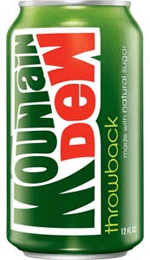Thinning Out: The Skinny on Weight Loss
Expert-approved health and diet tips
By L.A. Jones
 For Breakfast, Choose Proteins Over Carbs to Decrease Appetite.
For Breakfast, Choose Proteins Over Carbs to Decrease Appetite.
A University of Connecticut study published in February found that participants who ate eggs in the morning, instead of a bagel and yogurt ate 29 percent fewer calories at lunch, felt more energetic, and had more stable ghrelin and insulin levels (appetite-affecting hormones) over the next 24 hours.
Short-Circuit Faulty Wiring.
Whether or not you have a copy of the obesity gene, keep in mind that the best cure for this isn’t a diet. It’s exercise, according to a European study. For teens with at least one copy of the gene, an hour of moderate physical activity a day kept their waist circumference and body fat at nearly the same levels as luckier participants without the “fat gene.”
High-Fructose Fallout.
Dieting brides, brooms and grooms-to-be may be taken aback to hear that you don’t have to cut out sugar to drop a few pounds and experience a surprising boost in energy. After years of back and forth between corn producers and skeptics, it’s becoming obvious which sweetener is most to blame for the Great American Weight Gain. From soda and energy drinks to Gatorade and ketchup, it’s hard to find any sweetened liquid in the United States without high-fructose corn syrup (HFCS). In the last 15 years, the amount of HFCS consumed in the United States caught up to traditional table sugar and now accounts for 40 percent of American caloric sugar intake, an occurrence that has mirrored the rise of an “obesity epidemic.”
 Despite the American Medical Association’s claims that the two are equal contributors to weight gain, Princeton University’s Neuroscience Institute and Department of Psychology begs to differ. Even when its rats slurped sweetened water with half the HFCS Americans consume in comparable amounts of soda, they gained far more weight than rats given water with the same amount of sugar found in soda, particularly around their stomachs. In a corresponding study, HFCS rats demonstrated symptoms of metabolic syndrome, severe fat gain (48 percent more than the rat chow-only group) and unhealthy triglycerides spikes. Bottom line: The rats became obese. If sugar is a dieter’s stumbling block, high-fructose corn syrup is an outright booby trap.
Despite the American Medical Association’s claims that the two are equal contributors to weight gain, Princeton University’s Neuroscience Institute and Department of Psychology begs to differ. Even when its rats slurped sweetened water with half the HFCS Americans consume in comparable amounts of soda, they gained far more weight than rats given water with the same amount of sugar found in soda, particularly around their stomachs. In a corresponding study, HFCS rats demonstrated symptoms of metabolic syndrome, severe fat gain (48 percent more than the rat chow-only group) and unhealthy triglycerides spikes. Bottom line: The rats became obese. If sugar is a dieter’s stumbling block, high-fructose corn syrup is an outright booby trap.
The good news: There is an easy solution. Check ingredient labels, and choose natural soft drinks. If you crave a cheaper fizzy fix, PepsiCo has recently offered consumers a healthier option in its Pepsi and Mountain Dew Throwback beverages, which use the company’s original sugar recipe. With a less syrupy texture, they also taste better than their obesity-encouraging offspring.
MOST VIEWED STORIES
- These nonbinary cosplay lovers brought anime to life for their ethereal wedding
- Sweet lesbian proposal on a gondola [VIDEO]
- Navy and green wedding for Disney lovers in Beacon, New York
- Ensuring Inclusivity: 5 Considerations for Guests with Disabilities on Your Wedding Day
- Greenhouse wedding in Downtown Los Angeles for two brides





















